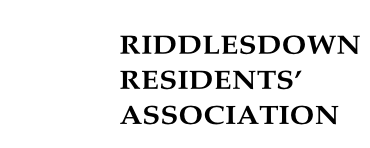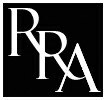


REPORTS FROM THE RECORDER & ADVERTISING RATES
The Riddlesdown Recorder
On Line
PLANNING APPLICATIONS
PLANNING ADVICE ON
USEFUL LOCAL INFORMATION & LINKS
Information on Local Healthcare, Leisure,
Transport -
Community Page
(Things to do, join and help with)
ABOUT THE
RIDDLESDOWN
RESIDENTS’ ASSOCIATION
ABOUT RIDDLESDOWN
AND ITS COMMON

Tips and Guidelines for Building Control Applications, the Party Wall Act 1996 and Noise from Building Sites, in Riddlesdown -
- What Requires Building Control Approval -
for a single residential unit only - Dangerous Structures – Building Control
- The Party Wall Act 1996
- Pollution Control – Noise from Building sites
What Requires Building Control Approval -
In most instances any work that involves approval under the planning laws and also some work not deemed to require planning permission, requires Building Control approval as well.
Generally Building Control approval is required for structural alterations, building an extension and garage, converting or altering a loft space, installing replacement windows unless the contractor is FENSA approved, altering or adding drainage and waste systems to WC’s, baths, basins and sinks and the installation of some hot water systems. This list is not exhaustive so check with Building Control beforehand on 020 8760 5637 or click here for answers to frequently asked questions about what requires building approval. You will also find the three required building application forms to view or download in the “apply for it” section of “Do it online”.
Please be aware that Building Regulation information, like plans and application forms are not publicly available and so only very limited information can be given out.
However quite frequently, developers and householders undertaking building work will use private ‘Approved Inspectors’ to oversee the building works instead of Council Building Control Officers. For an adjoining owner/occupier this can sometimes be difficult to find out who is controlling the building works.
Approved Inspectors are businesses which work in the private sector as an alternative to Local Authority Building Control (LABC). An Approved Inspector will be registered with the Construction Industry Council (CICAIR) to advise and guide clients about the Building Regulations.
Approved Inspectors can be used instead of your local authority. The Approved Inspector works with a client throughout the construction process. They will offer advice and check that any building work undertaken is done so in compliance with the Building Regulations. This includes taking responsibility for plan checking and inspecting any building work through a series of site inspections.
When you appoint an Approved Inspector they will jointly notify the Local Authority of your intended building work. This is done via an Initial Notice submission. The Initial Notice is sent to a local authority, who approves it. Once the notice has been accepted the Approved Inspector assumes responsibility for plans checks and site inspections on your project.
Their role includes:
- Giving advice about how the Building Regulations apply to your work
- Checking the plans
- Issuing a plans certificate (if requested)
- Inspecting the work as it progresses
- Issuing a final certificate.
If in doubt speak to Croydon Council’s Building Control Department first on 020 8760 5637.
Dangerous Structures – Building Control
Any dangerous structure that you may see in the London Borough of Croydon should be reported their Building Control Section. If it is between 5:30pm and 8:00am, at the weekend or on a public holiday, then please use the Emergency Out of Hours Contact number 020 8688 1700.
If it is during the hours of 8:00 am and 5.30pm, Monday to Friday, then contact Building Control on 020 8760 5637 or use this link
You should NOT use this system if you own the building or structure in question. If you think that your building or structure is dangerous, you should seek professional advice as how to make it safe and take action immediately. Building Control would be willing to discuss the situation with you during office hours on 020 8760 5637. If your building or structure has suffered damage and become immediately dangerous, then use the emergency contact number above. You should be aware that, should it be necessary for a surveyor to attend site and/or work to be done to remove a danger, then a charge is likely to be made. All of the information that you include will be strictly confidential.
One area that is frequently forgotten about and can cause disputes between neighbours, is the Party Wall Act 1996. Previously this Act, which only applied to central London, is now relevant to the whole country.
If you intend to carry out any building work, which involves work on an existing wall shared with another neighbour or owner (a party wall), damp proofing works, building work on the boundary with a neighbouring property (which includes some types of fences and brick walls but not wooden fences) and any excavation, like foundations within 3 or 6 metres from your neighbours property, then you must notify all neighbours affected. This is normally in writing and by way of formal documentation. This needs to be undertaken either one or two months prior to commencing work, depending on the type of notice served. The adjoining owner can then either consent in writing or give a counter notice objecting. There are fairly strict time limits in which this applies.
Usually a Schedule of Condition with photographs is then prepared, to verify the state of all adjacent structures before the works commence. Generally all costs for the Act should be borne by the person carrying out the building work. If you have not notified your neighbour of building works, then you are perfectly entitled to take court action and obtain an injunction to prevent you from undertaking the work, until it is resolved.
If a tenant or leaseholder is in the building next door, you will need to tell the Landlord, as well as the person living in the property, that you want to carry out building work to the party wall or excavate nearby. The Act also applies to the floors and ceilings in flats.
The Act is designed to minimise disputes by making sure property owners use a surveyor to determine the time and way in which work is carried out. Obviously the best way of avoiding disputes is to talk and discuss things with your neighbour before you submit a planning application.
This Act doesn't cover everyday minor jobs that don't affect the neighbours' half of a party wall including, fixing electrical sockets, screwing in wall units or shelving, or replastering your walls.
Further information can again be obtained from Department for Communities and Local Government website by clicking on this link. Or alternatively, appoint a Surveyor who is qualified to undertake this, to act on your behalf.
Alternatively this Govt handbook is very useful.
Pollution Control – Noise from Building sites
Croydon Council expects building contractors undertaking construction and maintenance works, whether on private land, highways or railways, to comply with the Construction Code of Practice or agree appropriate variations with them. This will enable them to comply with the Control of Pollution Act 1974.
The Code of Practice restricts noisy work between:
Monday to Friday 08:00 to 18:00
Saturday 08:00 to 13:00
Sundays and Bank Holidays -
Where noisy works are required to be completed at night, contractors must demonstrate an overriding reason why the work cannot be done during the prescribed hours. This should not be simply because the works are behind schedule or it is more economical to work at night.
Regardless of the time of day, the responsible party must use best practicable means to minimise the noise. Further details are provided in the Code of Practice.
If they witness unacceptable noise from site activities, Croydon Council can take legal action under Section 60 of the Control of Pollution Act 1974.
Please note: home improvements such as DIY works inside a dwellings are not classed as construction work and are therefore not subject to the hours specified above. However, noisy DIY can be a statutory nuisance depending on the time of day, the duration and loudness of the works. The Council can deal with such problems in the manner described for loud music.
For more information contact the Pollution Enforcement Team 0208 760 5483. E-
Or the Pollution Control website